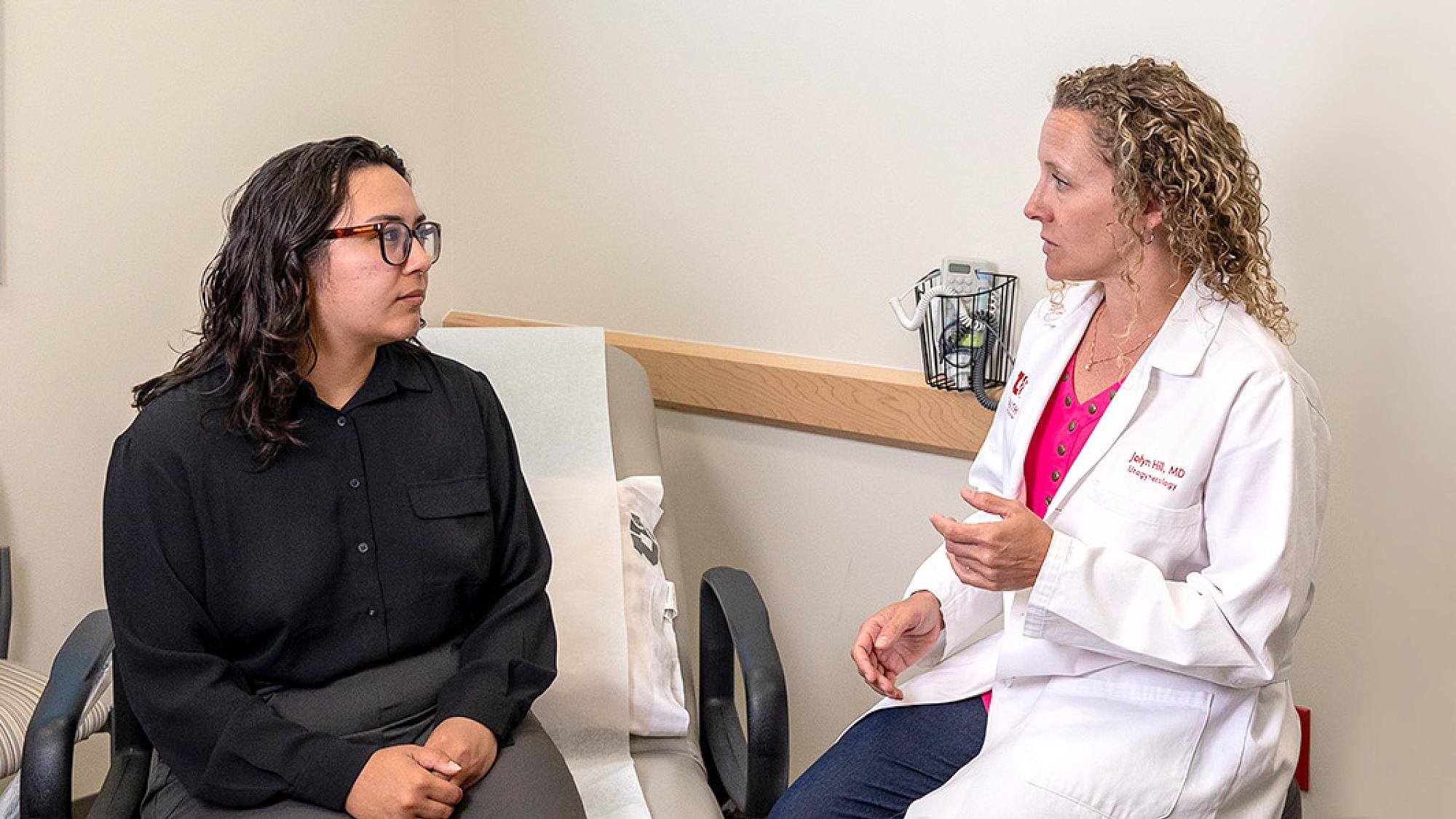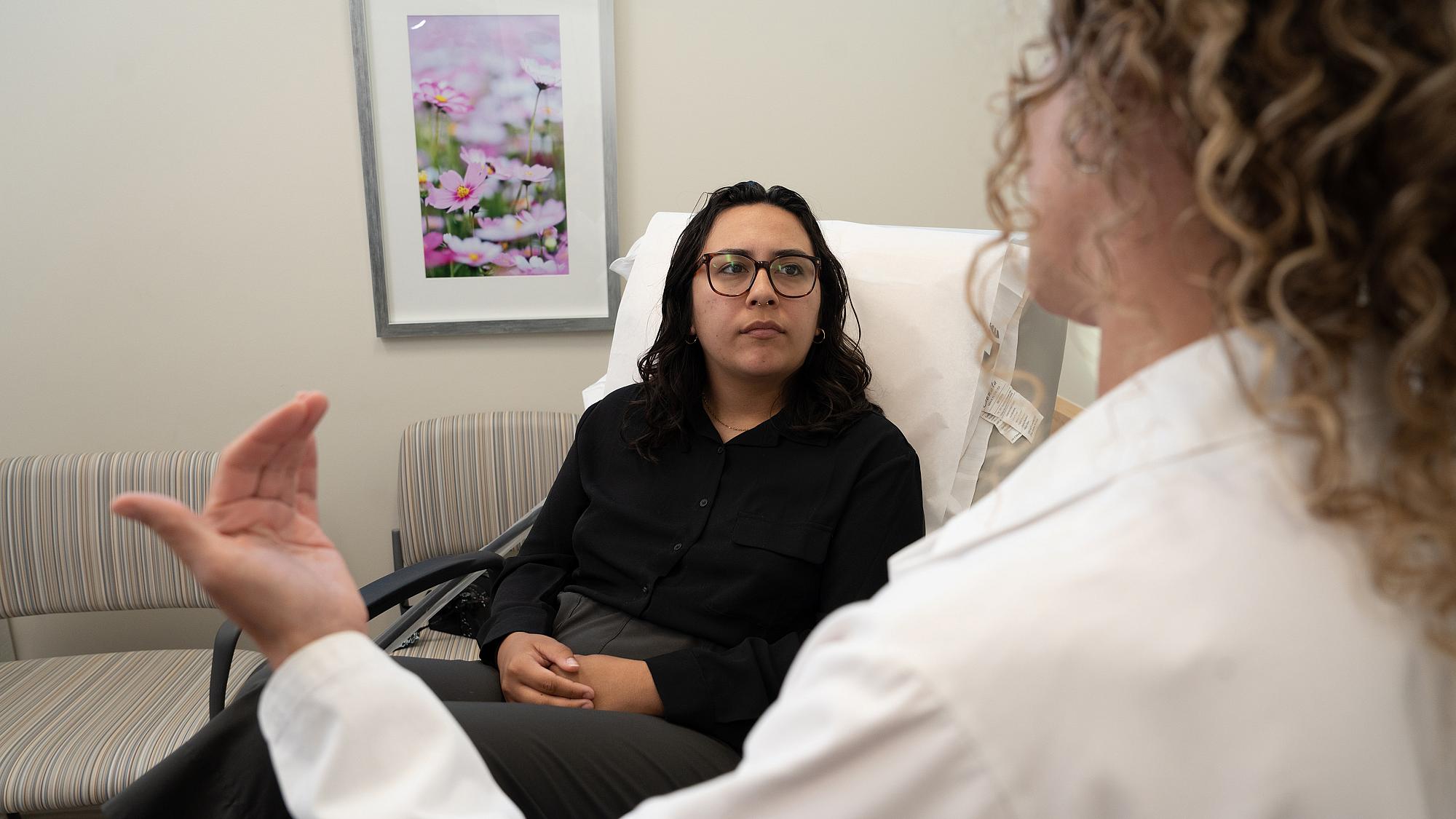The Pelvic Care & Incontinence Center: Urogynecology Specialists
Many problems in your bladder and pelvis—also called urogynecology problems—can negatively affect your health and quality of life. Common bladder and pelvis health issues in women include the following:
- Urinary leakage and voiding
- Pelvic prolapse (prolapse or slipping of the organs inside your vagina, cervix, & rectum)
- Lower bowel dysfunction
- Postpartum pelvic floor complications (and prepartum)
Sometimes young women with neurologic problems and difficult childbirth may have these bladder and pelvic health symptoms as well.
The Pelvic Care and Incontinence Center brings together the collaborative expertise of specialists in obstetrics and gynecology, urogynecology, urology, general surgery, and gastroenterology to work together on bladder and pelvic issues (also called the pelvic floor).
Facts About Bladder & Pelvic Conditions
Bladder and pelvic conditions can lead to a number of problems that we are familiar with, even if we don’t know what treatment options are available. Here are some facts about these conditions:
- When the tissue that supports the pelvic organs is stretched or damaged, the organ (bladder, uterus, rectum, intestine) can press against the wall of your vagina. This can cause a bulge.
- 15 to 30 percent of women have pelvic prolapse. Childbearing and obesity increase your chances of pelvic organ prolapse.
- Urinary incontinence affects 18 million women. Your chance of urinary incontinence increases with age.
- Bowel incontinence is closely associated with urinary loss.
Find a Doctor / Location
Treating Urinary Incontinence & Pelvic Prolapse
We offer a variety of treatment options for urinary incontinence and pelvic prolapse.
Treatments may include the following:
- Lifestyle changes
- Minimally invasive procedures, such as
- Pessaries or
- Botox injections
- More complex surgical procedures
At University of Utah Health’s Pelvic and Incontinence Care Center, we will give you the best available treatment. Our team of caregivers will focus on customized treatment solutions that match your needs.
Also, find fantastic information about these conditions and treatments here at Voices for PFD (pelvic floor disorders).
Resources for Our Patients
When Should You See a Urogynecologist?
Do you have trouble with an overactive bladder, feel pressure in your pelvis, or feel like your vagina, bladder, uterus, or rectum has dropped, causing a bulge or pressure? You do not have to suffer through these symptoms. They are treatable.
5 for Life Screenings
A big part of staying healthy is detecting diseases early. We make it easy for you to get lifesaving tests for heart disease, breast cancer, cervical cancer, skin cancer, and colon cancer in one convenient visit.
Postpartum and Pelvic Floor Complications
As a mother-to-be or a new mom, there’s a lot you are juggling – life with a new baby, lack of sleep, breastfeeding, and adapting to other changes to your body. Our new clinic for postpartum (after childbirth) pelvic floor problems at University of Utah Health is specifically designed to address pelvic floor issues that may occur before or after childbirth.






